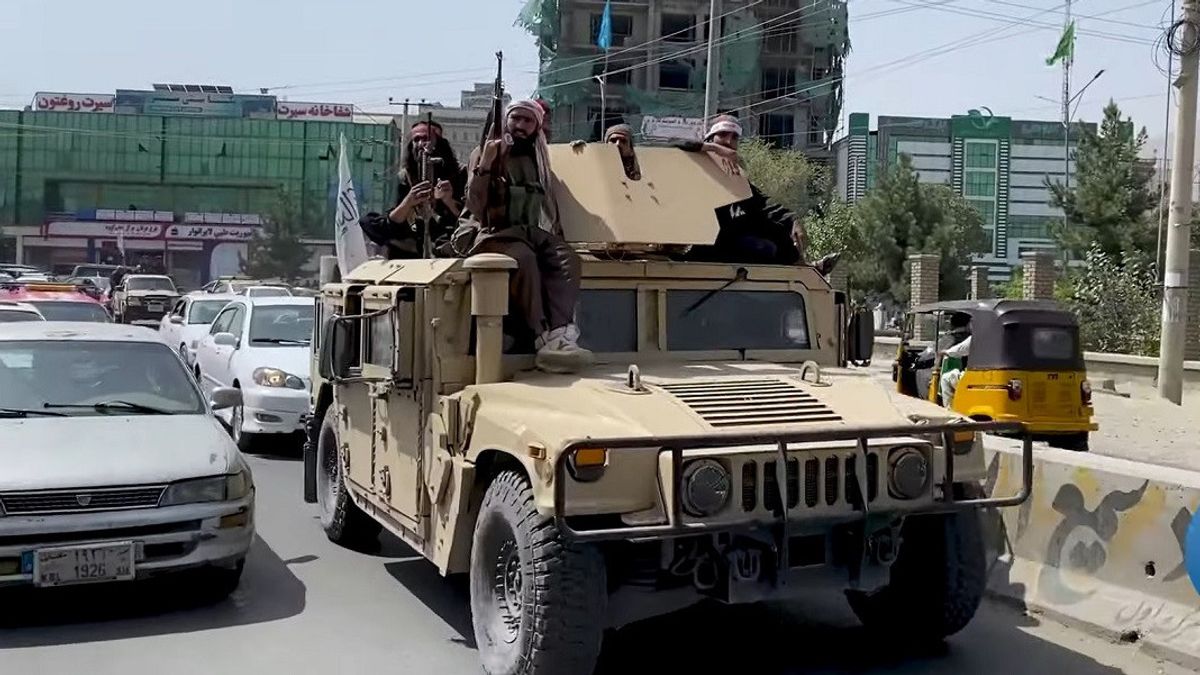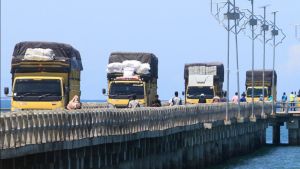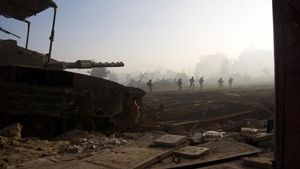JAKARTA - Britain's former spy chief has warned the terror threat is 'bigger today' than before the withdrawal of the coalition of Western powers from Afghanistan.
Sir John Sawers, who spent five years as head of MI6, told Sky News there has been an increased risk of foreign and local-based attacks since the fall of Afghanistan to Taliban control.
"I think the terrorist threat today is bigger than when we were able to operate in Afghanistan," he said.
"That's for two reasons I think, first, because of the risk we won't be able to monitor terrorist groups and take action against them in Afghanistan itself. But I think maybe the more pressing risk is, those extremes, the ruthless people who take inspiration from the success of the Taliban in Afghanistan, will probably take matters into their own hands to carry out the attack."
Sir John noted how most of the attacks experienced in this country over the last five or 10 years, stemmed from local terrorists and were not directed out of Afghanistan, like the 9/11 attacks in the US.
"I think the security services will take another look at the radical groups in this country to make sure they are not planning further attacks, if you like, marking the success of the Taliban in Afghanistan," he added.
But Sir Mark Lyall Grant, who was national security adviser to former prime ministers David Cameron and Theresa May, said he was "less convinced" than Sir John that the terror threat to Britain had increased.
"There is no doubt that this takeover of the Taliban and the perceived victory, as it were, over America will drive other extremist groups around the world, whether in the Sahel, Somalia, northern Nigeria and beyond, all of them will get a boost," he said. to Sky News.
"But I don't think it increases the risk for us here in the UK, certainly not directly. The Taliban themselves pose no risk, they are not an international terrorist group."
"And I think there is some prospect that they will learn from the last 20 years and not allow more extreme groups, like al-Qaeda and ISIS to operate outside Afghanistan," said Sir Mark.
He added that none of Afghanistan's neighbors wanted the Taliban-controlled country to become a base for terrorism.
To note, the UK's current national terror threat level, which indicates the likelihood of a terrorist attack in the UK, is rated "substantial" meaning the attack is 'possible'.
In November last year, the threat level was raised to "severe" meaning an attack was rated 'very likely', following incidents in France and Austria. However, in February, Home Affairs Minister Priti Patel announced the terror threat level had fallen back to "substantial".
There are five different threat levels, ranging from "low" to "critical", with the Joint Terrorism Analysis Center (JTAC), made up of counter-terror experts from the police, government and security agencies, responsible for deciding which level the UK should take. sit.
In November 2019, the terror threat level fell below "severe" for the first time in five years. The highest level, "critical", was last reached in September 2017, after the Parsons Green train bombing.
The English, Chinese, Japanese, Arabic, and French versions are automatically generated by the AI. So there may still be inaccuracies in translating, please always see Indonesian as our main language. (system supported by DigitalSiber.id)













